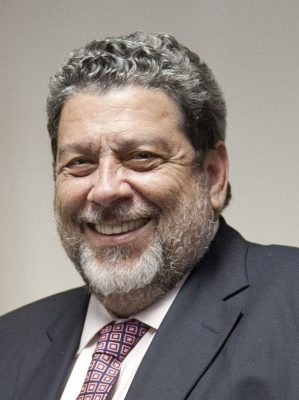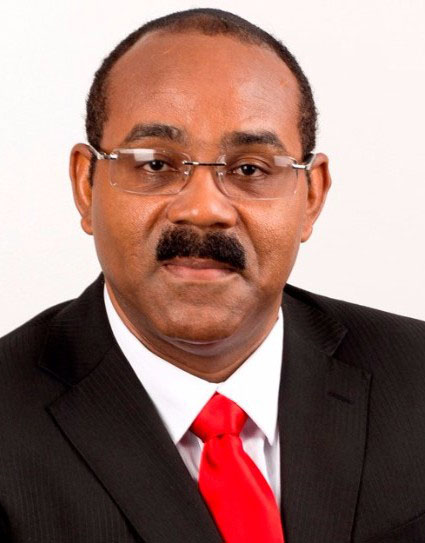(Jamaica Gleaner) Prime ministers within the Caribbean Community (CARICOM) have been sounding off over the decision of a select few Caribbean leaders to meet with United States (US) President Donald Trump last Friday in Florida to discuss the deepening political crisis in Venezuela and energy security.
Trump met with leaders from The Bahamas, the Dominican Republic, Haiti, Jamaica and St Lucia at his private residence in Palm Beach, Florida.
Among those expressing outrage is the prime minister of Antigua and Barbuda, Gaston Browne, who questioned whether the visit represented diplomacy or bribery.
“I feel embarrassed for those weak-minded leaders who allowed themselves to be used by carrying out the agenda of others,” Browne, writing on Facebook, said over the weekend as details emerged about the outcome of the meeting.

“CARICOM must continue its sustaining position by standing on principle without inducements or fear of reprisals,” he insisted, apparently in reference to Trump pledging investment for the Caribbean countries whose leaders he hosted.
A high-level delegation from the Overseas Private Investment Corporation (OPIC), the US development lender, would visit their nations in the next 90 days, the White House said on that issue.
And reacting, Jamaica’s Prime Minister Andrew Holness told journalists in Florida that such a move was important.
“The message from this meeting is that the United States wants to encourage and promote stronger relationships with the region. It’s absolutely important that it’s not just talk – that there will be real investment,” said Holness, the immediate former chairman of Caricom.
Browne, who leads a socialist party in Antigua and Barbuda, scoffed at the promised US investments, declaring that it was evident that “there are some who are determined to undermine CARICOM’s solidarity and to relegate the region to an object of history”.
“The irony about all this, OPIC is already operating in these countries and China offers better credit terms: developmental loans over 20 years at two per cent interest with a five-year moratorium,” he argued.
Also taking issue with the visit is Dr Ralph Gonsalves, prime minister of St Vincent and the Grenadines. Speaking to the media in Barbados over the weekend for a shareholders’ meeting of airline company LIAT, Gonsalves described the situation as “troubling”.
Gonsalves stated that the meeting cut across the agreed mechanisms Caricom has in place.
“These four prime ministers that have gone – clearly it’s not a CARICOM mission – and none of those governments can speak for anybody but themselves. Certainly, they can’t speak for CARICOM or St Vincent and the Grenadines,” Gonsalves said, mentioning that CARICOM has its own committee, comprising St Kitts and Nevis’ Prime Minister Dr Timothy Harris; Prime Minister of Trinidad and Tobago Dr Keith Rowley; and Mia Mottley, prime minister of Barbados, to spearhead dialogue on the crisis in the South American country.
He said the region must be aware of “the mischief that some persons may be up to to seek to divide us in a manner which we ought not to be divided and therefore reduce the extent of the efficacy of our work”.
Meanwhile, Jamaica’s Foreign Affairs Minister Kamina Johnson Smith has made it clear that the only country that is part of the Lima group that was represented at the closely watched meeting is St Lucia.
Johnson Smith also sought to make it clear that Jamaica has not recognised Juan Guaidó as president of Venezuela.






